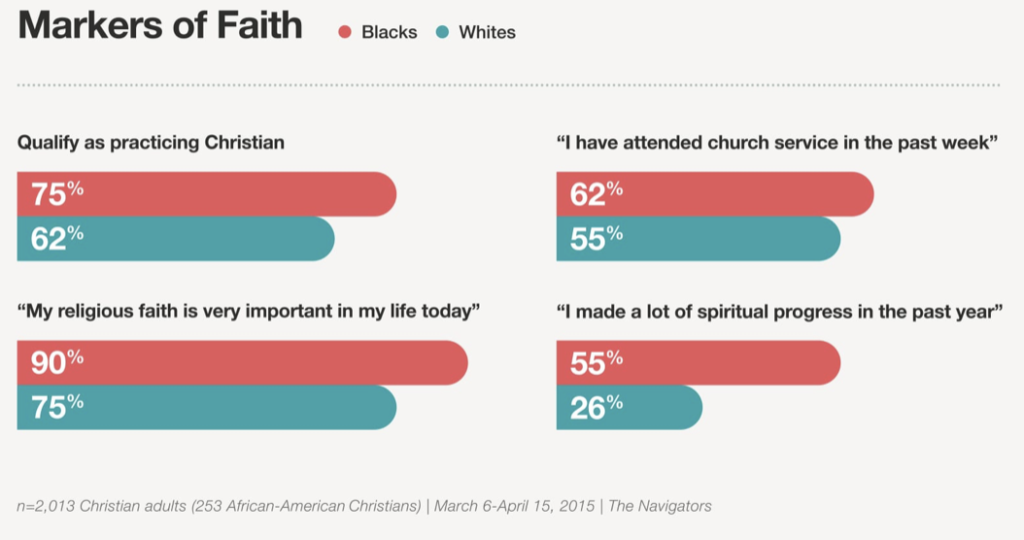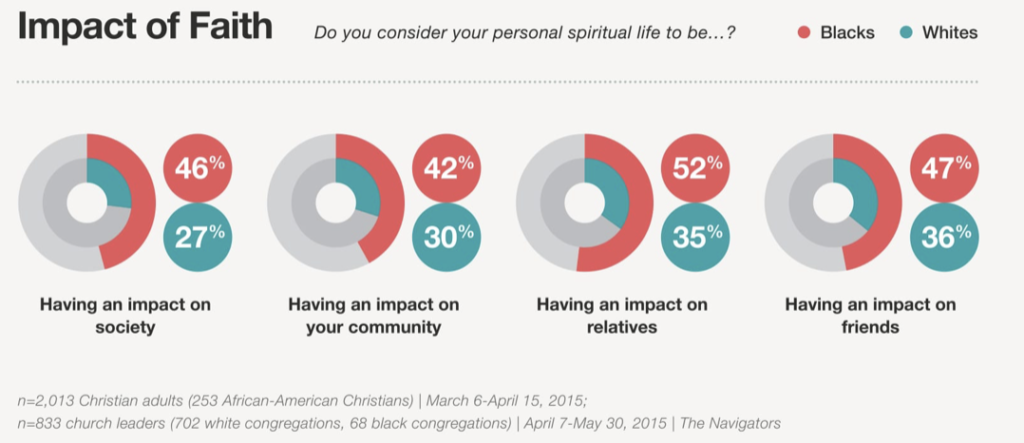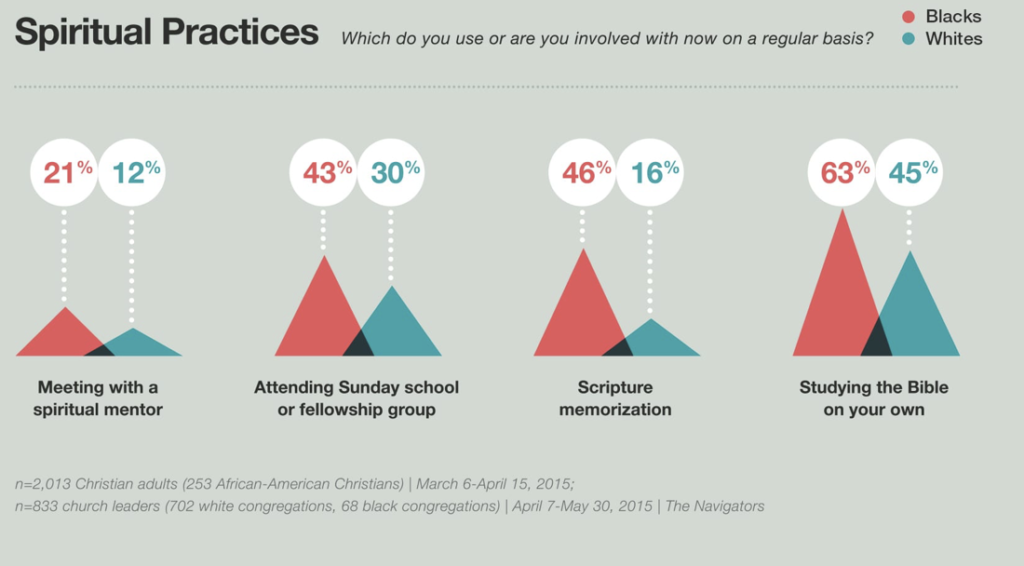Racial Divides in Spiritual Practice
Martin Luther King Jr. once stated that it is appalling that the most segregated hour of Christian American is 11:00am on Sunday. Progress is slow on racial reconciliation in this country, particularly given recent events. But why do lingering divisions exist in the Church, the very communities built on the promise of forgiveness and reconciliation? Finding racial unity in a congregation is a complex task that requires a deep recognition of racial differences in how Christians understand and practice their faith.
Consider the following snapshots that were prepared between Barna Research and Navigators in 2015



These snapshots are not designed to elevate one group of worshippers over another group as though they are superior. Careful examination of the data in 2015 reveals there is a real need for improvement no matter the ethnic origin. However, it must be concluded that white congregations have much to learn about spirituality being “soulish”. Black worshippers feel their faith and it is expressed openly. I am not suggesting that any group of worshippers should emulate the style and expressions of other worshippers and force that style to become normative. Can we agree the miracles of scripture and the hope of Heaven will cause a bit of excitement in our soul? How do you keep that quiet? How do you remain expressionless while serving a Mighty God?
For reconciliation to work in the Faith Communities of American it seems we must own our need for a deeper and meaningful growth in our worship expression. We must also accept the fact that white and black worshippers are starting the dialogue from different starting points of belief and expression. Question: If Faith-Life in Christ does not matter, then what matters?
Shepherds Advantage provides Servant Leadership that helps people close the gap between where they are and where they want to be. Shepherds Advantage closes that gap by providing Leadership Development, Key Note Speaking, and Executive Coaching.



